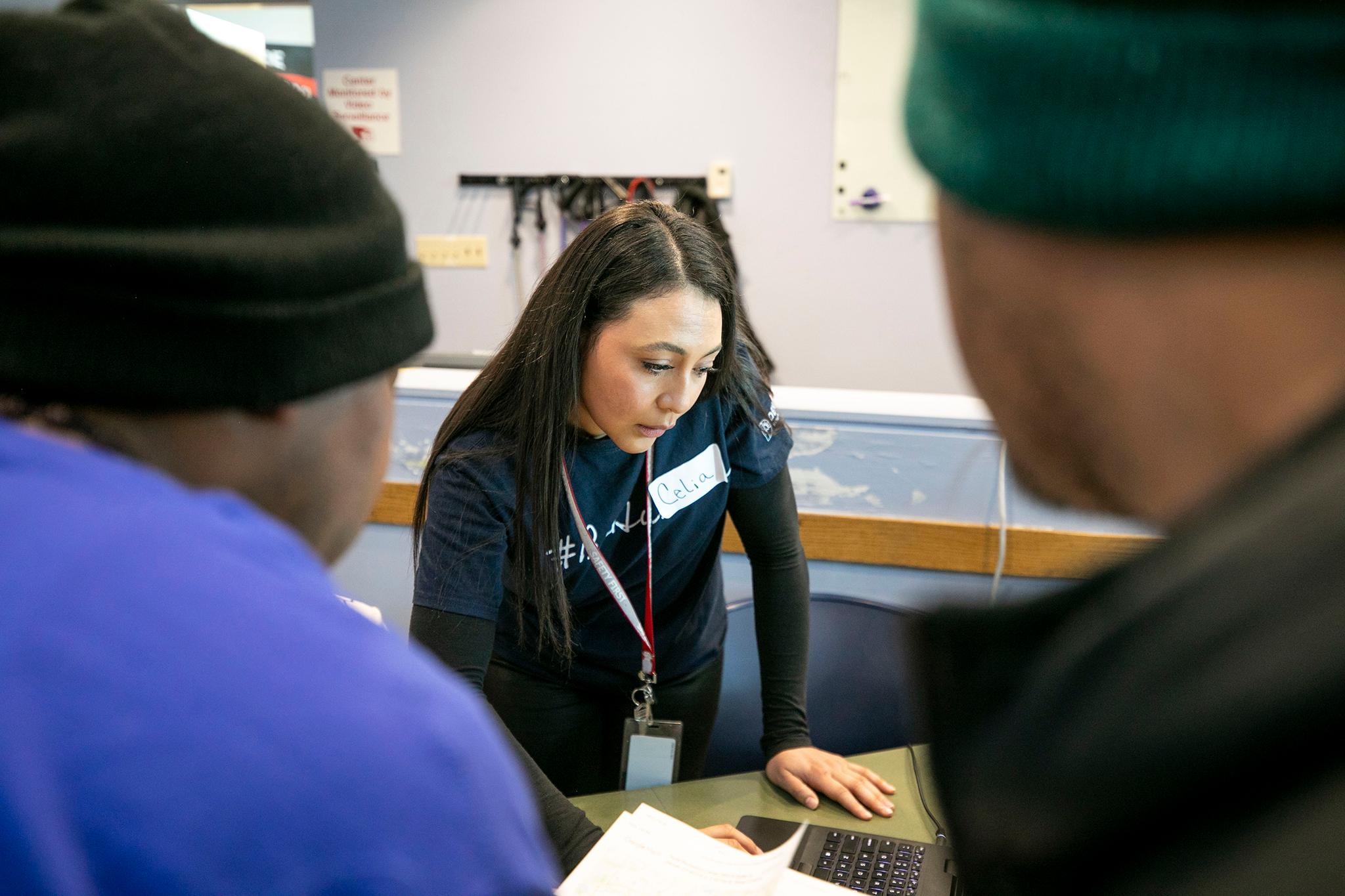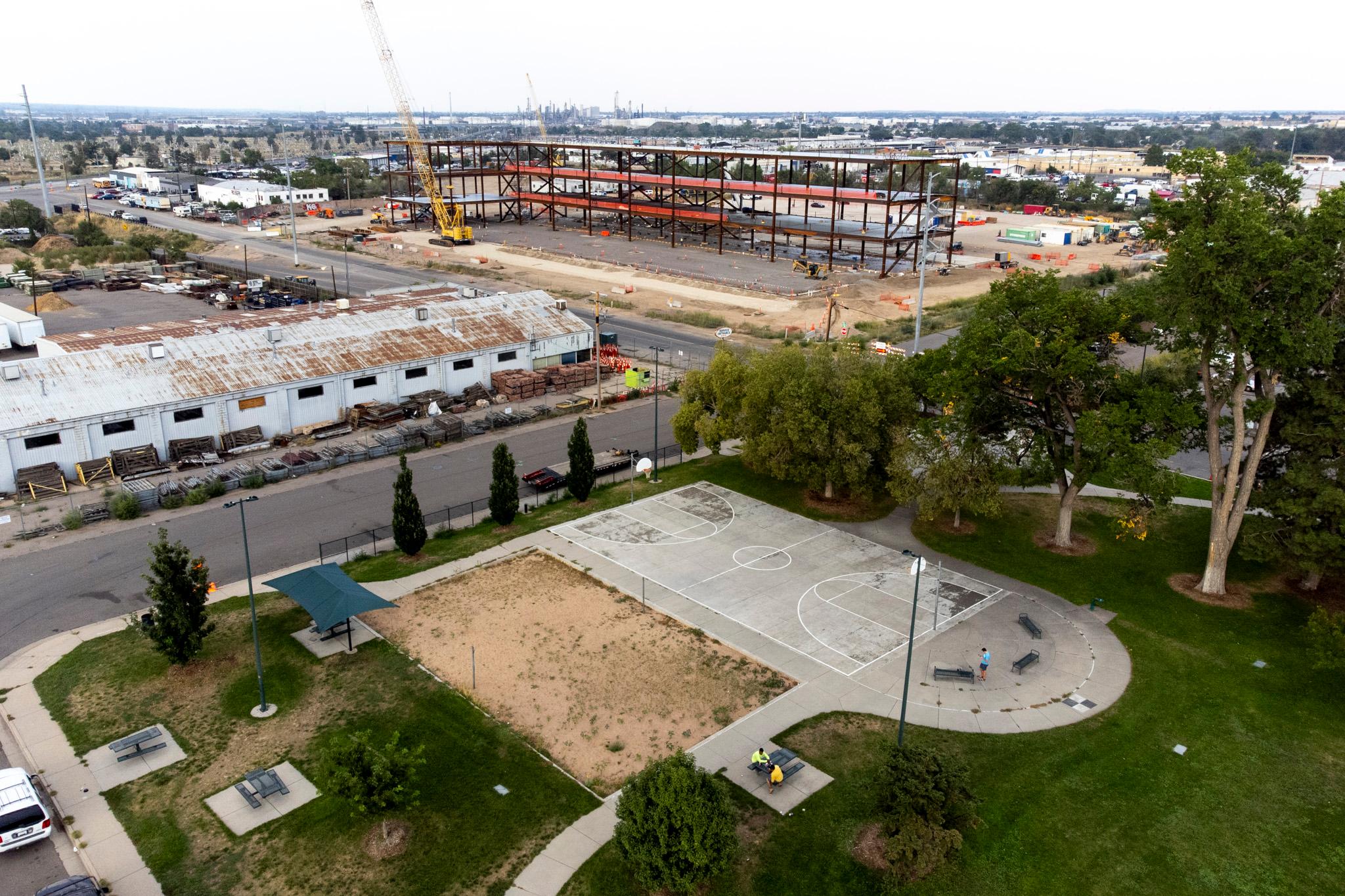Updated on Dec. 8:
The city of Denver said it hired more than 200 people as part of its push to quickly staff up migrant shelters.
The jobs include full-time and part-time bilingual jobs staffing migrant shelters. The pay ranges from $25 for day shifts to $32 for night shifts.
According to the city, more than 250 people applied for roles on Friday.
"We remain ready to respond to this unprecedented challenge for our city as migrants arrive seeking refuge and support," said Denver Human Resources Executive Director Kathy Nesbitt in a statement Friday. "I am incredibly proud of how quickly our agency, led by the Talent Acquisition team, came together to meet this urgent need."
This article's headline has been updated. The original story continues below.
With more migrants continuing to arrive, the city of Denver says shelters desperately need more staff. It's looking to hire 150 people this week to support migrant operations.
"We, as you know, have tried to not discharge families into the cold weather in the midst of this moment," Mayor Mike Johnston said at a press conference Tuesday. "So, that also means our numbers have increased as we pile on families. We think that's also the right humanitarian thing to do. So these next cohort of workers are the ones making sure we are supporting those most in need in the times of the holidays."
As part of the hiring push, the city will host a rapid hiring event on Friday, where Denverites can interview, onboard and start work that same day.
Denver currently employs around 200 people supporting migrants, but needs to up that figure by 75% to respond to the current crisis. The city is currently sheltering more than 2,600 people as part of an emergency response that began around a year ago.
"The most important crisis we have right now is staffing," Johnston said. "We need the people of Denver to be able to step up and actually help us make sure the city remains welcoming through the holidays.

The city is particularly looking for bilingual Spanish speakers to work at migrant shelters.
The job pays between $25 for day shifts and $32 per hour for night shifts, with full-time, part-time, day and overnight shifts. Shifts will be on-call eight hour slots, with staff working between 24 and 39 hours per week.
The work includes things like checking in new guests to migrant shelters, giving facility tours, orienting guests to shelter rules, serving meals and cleaning certain shelter areas. Applicants must have graduated high school or otherwise received their GED or other high school equivalency certificate.
Here's what to expect at the hiring event on Friday.
The hiring event hosts two sessions, one from 8 a.m. to 12 p.m. and another from 1 p.m. to 5 p.m. Interested candidates can pre-register online, but can also walk in to the event taking place at the Wellington Webb Municipal Building at 201 W. Colfax Avenue.
At the hiring event, prospective employees will do interviews and complete job paperwork, onboarding and orientation all in one day if hired.
Applicants need to bring original hard-copies of I-9 documents, which include things like a U.S. passport, a permanent resident card, a foreign passport with a visa, employment authorization documents or a driver's license or other ID card. (Applicants can find a full list of acceptable documents here.)
Denverites also need to bring documents showing seven years of address history for a criminal background check and will need to fill out emergency contacts as well as a W4 form. The city also recommends bringing direct deposit information, including a bank routing and account number.
Interested applicants who cannot make the event can apply for other open positions online.
Johnston said that if the city cannot staff up, it might not be able to meet shelter needs.
The biggest issue right now, according to Johnston, is not space or funding but staff. Johnston recently visited Washington D.C. with a number of other mayors to ask for more federal funding to support migrants. He said that the city currently has funding allocated for these new roles and just needs to make the hires.
"The biggest risk if we can't hire people is we wouldn't be able to open sites or be able to open them safely," he said Tuesday.













